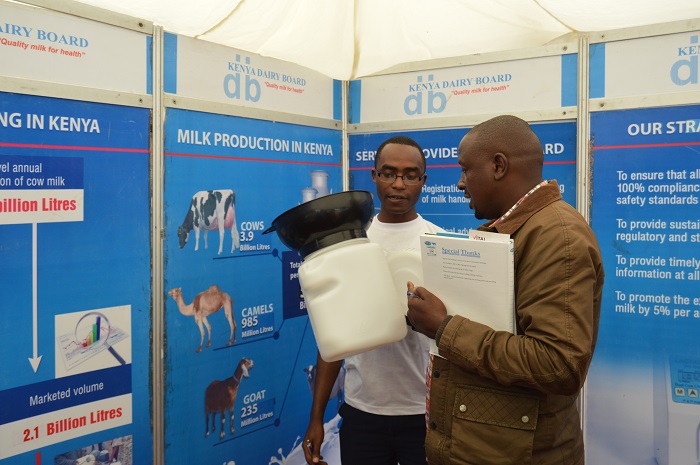NAIROBI, KENYA: Kenya Dairy Board this week ordered the indefinite suspension of milk powder importation in what it termed as a move to protect domestic milk processors from competitors within the region.
In a March 6 statement, the regulator said owing to the rains expected this month, local milk production is likely to be boosted hence the need to reduce the need for imports and enhance the domestic processors to earn a fair share of the market.
“In anticipation of the long rains, the government has stopped the importation of milk powders to cushion the industry from surplus production and low producer prices,” the board’s managing director Margaret Kibogy wrote to milk powder importers in a letter dated March 6.
The board also suspended the issuance of import permits for the same until further.
“Consequently, the board has temporarily suspended the issuance of these import permits until further notice.”
The regulator said it will continue to monitor the production and demand dynamics of the commodity before deciding when imports of milk powder can resume.
“We will make a decision [of lifting the ban or not] after the monitoring, this is to the benefit of the farmer,” Ms Kibogy told sections of media.
However, economists in the region say the move is seen as a means of protecting processors and farmers from lower-priced milk from neighbouring countries like Uganda, and Tanzania.
Private Sector Foundation Uganda (PSFU) responds
Ms Sarah Kagingo, the Vice Chairperson Private Sector Foundation of Uganda (PSFU) said Kenya’s milk importation ban contradicts the common market protocol of the East African Community on the free movement of goods and services.
“Kenya’s ban on importation of our products is not new, if it’s not milk, it’s eggs or grain. The ban contradicts the EAC (East African Community) trade protocols, the Common Market Protocol on the free movement of goods and services, as well as the agreement that established the African Free Continental Trade Area (AfCFTA),” Ms Kagingo said on Thursday afternoon.
“At a strategic level, we partner with government in pursuit of integration of regional markets for the benefit of the entire private sector in the region. We are tabling the unfortunate development to government to use their good offices and diplomatic mechanisms to engage Kenya,” Ms Kagingo explained when what steps PSFU would take to that effect.
She added,” regional trade should be the cornerstone of EAC Partner States’ policies. Our countries signed the Common Market Protocol in 2009 which came into force in July 2010. However, the practice often contradicts what was ratified, and businessmen engaged in export need handholding. We (PSFU), in partnership with the Ugandan government, have held several business summits to, among others, resolve barriers to trade and travel.”
Ruto’s backtracking administration?
Kenya’s Deputy President Rigathi Gachagua has in recent weeks claimed that a few Kenyan families have a monopoly over the milk industry. He said the administration would open space for other competitors to invest in the industry and lower prices in the drought and hunger–stricken East African country.
In the first weeks of President William Ruto’s administration, he spoke to issues of trade in East Africa’s dairy sector and assured Ugandan milk farmers that Kenya would buy cheap milk from Uganda so that processed milk from Kenya is exported to other countries.
Kenya’s move to freeze the importation of milk products is widely considered as Ruto administration’s backtracking.
If you would like your article/opinion to be published on Uganda’s most authoritative news platform, send your submission on: [email protected]. You can also follow DailyExpress on WhatsApp and on Twitter (X) for realtime updates.



